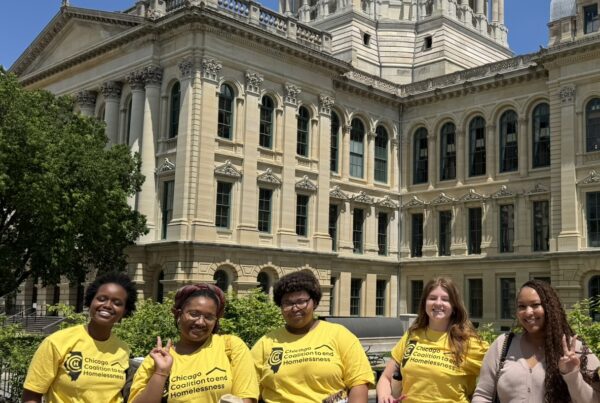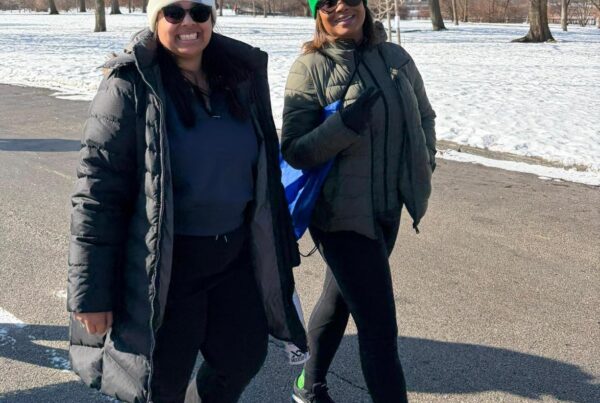First increase to TANF grant in a decade
Illinois families living in deep poverty will see a significant increase in their cash assistance, provided by the Temporary Assistance for Needy Families (TANF) program, with the adoption of the Creating Opportunities for Illinoisans in Need (COIN) Act in the 2018-2019 Illinois budget implementation bill.
The TANF program provides monthly cash assistance to needy children and their families which must cover all non-food expenses, including rent, utilities, clothing, personal hygiene products, diapers, and transportation. And while the current cash grant is much needed to help cover expenses, it is just not enough for families to fully support their basic human needs.
The amount of the TANF grant has only been increased twice in the past 22 years. Monthly grants have fallen to 21% to 25% of the Federal Poverty Level (FPL). With this legislation, monthly grants will increase to 30% of FPL for all TANF cases on October 1, 2018.
“TANF should help families in our state get back on their feet and move out of poverty but with grant amounts so low, most families are struggling just to survive,” explains Kimberly Drew, Associate Director of Policy and Advocacy at Heartland Alliance. “This grant increase is an important step in the right direction, but we have more to do to make sure no child in Illinois is living in extreme poverty.”
With this increase, smaller families with two to three members will receive around an additional $100 in their monthly grants. Larger families with four to six members will receive an increase of $150 to $250 per month. For example, a family of three in Cook County (a mom with two children) currently receives $432 per month, but now will be eligible for $520 per month.
“No state has devoted less of its TANF funding for cash assistance than Illinois,” says Dan Lesser, Director of Economic Justice at the Sargent Shriver National Center on Poverty Law. “We’ve seen the poorest families in our state have to make the most difficult of choices in order to get by. But with the adoption of the COIN Act, Illinois families will see the first increase in cash support in a decade.”
In addition, the COIN Act will:
- Eliminate county groupings so the amount of the grant will no longer vary by where someone lives.
- Ensure that child-only grants are at least 75% of the full grant amount. Child-only grants are provided to households where the parent is ineligible for assistance or a relative other than the parent is caring for the child so there is support for costs related to the child’s care.
CCH leader Maxica Williams, a mother of four children and cancer survivor, testified to the House Appropriations-Human Service Committee about her experience with TANF before the increase.
“There hasn’t been an increase to the grant amount in 10 years, but the cost of everything has gone up. You are forced to make the decision every month on what’s not going to get paid. If I buy the cheap feminine hygiene products for my daughters that means I may have to end up buying them new clothes.”
After hearing about the increase to the grant, Maxica shared, “This means a better chance of survival for my family. Landlords may rent to me, I can pay our bills, buy clothes and toiletries for my children. It means the world.”
Heartland Alliance, in partnership with the Chicago Coalition for the Homeless and the Sargent Shriver National Center on Poverty Law, and with the support of bill sponsors State Rep. Mary Flowers and State Sen. Mattie Hunter, led this effort. Strong bipartisan support was also displayed by elected officials across the state. Advocates will continue to champion for future TANF increases to create even more opportunity for Illinois families to be able to meet their most basic needs.
Please contact Amber (Cason) Crossen at Heartland Alliance for questions, information and interview requests: acason@heartlandalliance.org
###
Heartland Alliance for Human Needs and Human Rights – Heartland Alliance, one of the world’s leading antipoverty organizations, works in communities in the U.S. and abroad to serve those who are homeless, living in poverty, or seeking safety. It provides a comprehensive array of services in the areas of health, housing, jobs and justice – and leads state and national policy efforts, which target lasting change for individuals and society.
Chicago Coalition for the Homeless – The only non-profit in Illinois dedicated to advocating for public policies that curb and can ultimately end homelessness. Our organization leads strategic campaigns, community outreach, and public policy initiatives that target the lack of affordable housing in metropolitan Chicago and across Illinois.
Sargent Shriver National Center on Poverty Law – The Sargent Shriver National Center on Poverty Law provides national leadership in advancing laws and policies that secure justice to improve the lives and opportunities of people living in poverty.






